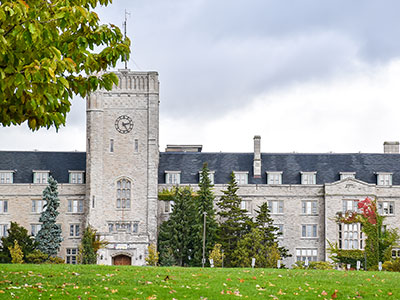 Student learning, job opportunities and accessibility were highlights in the provincial budget released today. University of Guelph president Franco Vaccarino says those priorities show the Ontario government understands the importance of investing in the country’s greatest resource – its students.
Student learning, job opportunities and accessibility were highlights in the provincial budget released today. University of Guelph president Franco Vaccarino says those priorities show the Ontario government understands the importance of investing in the country’s greatest resource – its students.
“The future prosperity of this province and this country, everything from economic health to quality of life, is linked to higher education and the future success of our students,” Vaccarino said.
“Fostering exceptional thinkers and global citizens – the leaders of tomorrow – is our focus at U of G. Providing students with innovative learning and training opportunities is fundamental to this process.”
The budget included expanded job-learning programs for students as part of the new $190-million provincial Career Kick-Start Strategy, including:
- A new, $68-million career-ready fund to help universities, colleges and employers provide learning experiences and other supports;
- $15 million in support for 3,000 research internships through the Mitacs Accelerate program, which connects universities and industry;
- 140 additional internships and fellowships in the TalentEdge program, which provides university students and recent graduates with real-world learning experiences; and
- Free access for all college and university students to skills-focused, online learning programs taught by industry experts.
“These new and enhanced learning opportunities dovetail with U of G’s commitment to develop the whole student – the individual, the scholar and the citizen,” Vaccarino said.
“Our goal is to provide our students with learning and research opportunities that help develop the skills and knowledge needed to improve life and make a difference in an ever-changing world.”
The budget also outlined changes to improve higher education’s accessibility and affordability, such as expanding free average tuition for students and adult learners; changing the minimum salary level for repaying OSAP from $25,000 to $35,000; and new supports in 2018 for students from middle- to upper-income families. There will also be a $200-million investment over the next three years to increase accessibility for aboriginal students, including additional targeted OSAP supports.
The provincial government also recognized the role the agricultural sector plays in building prosperity. Agri-food is a cornerstone of Ontario’s economy, contributing more than $36 billion to the GDP and supporting 800,000 jobs, the budget stated. The government pledged to continue to support farmers and to work with other provinces and the federal government to create Canada’s next agri-food policy framework.